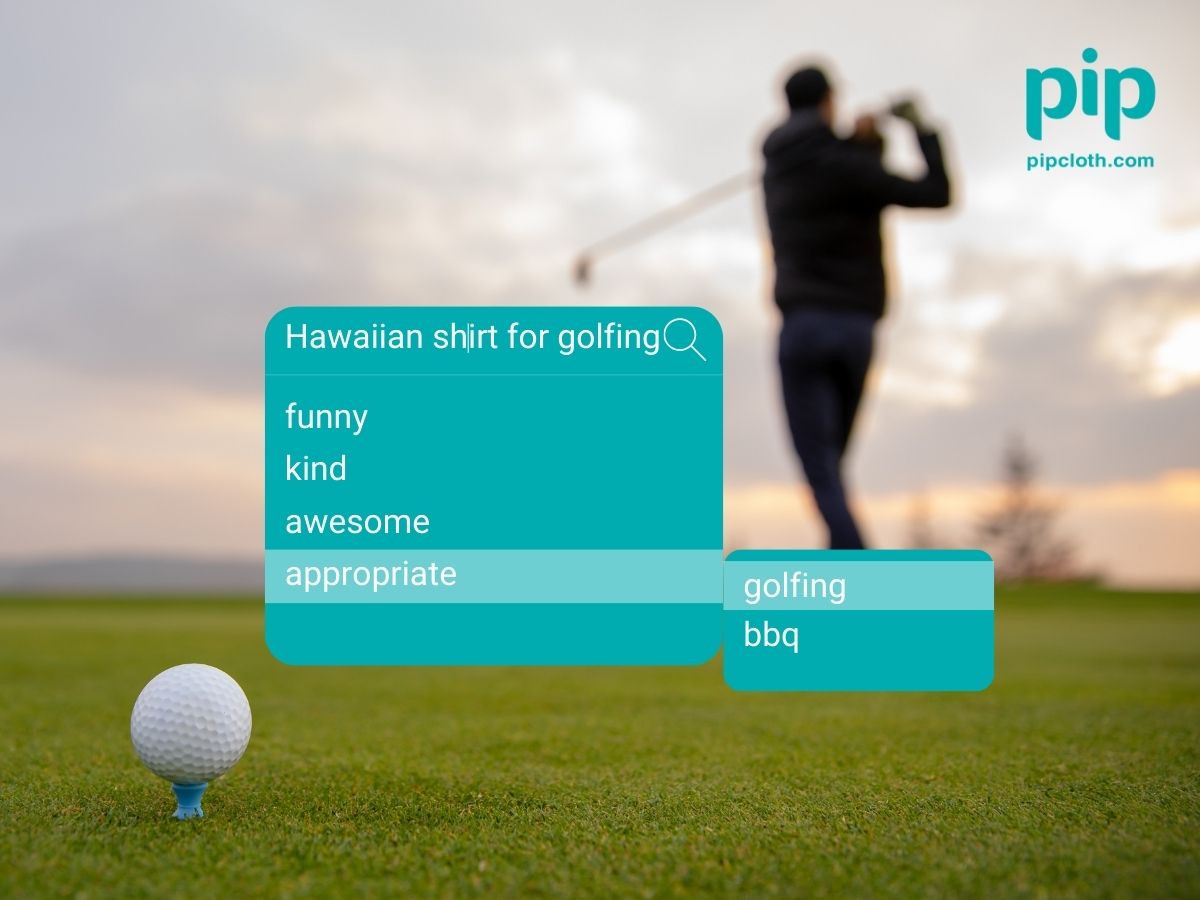Hawaiian shirts, also known as Aloha shirts, have been a beloved fashion staple since their inception in the 1920s and 1930s in Hawaii. These iconic pieces of clothing are renowned for their vibrant colors, unique patterns, and relaxed, tropical vibe. According to a survey conducted by the Hawaii Tourism Authority in 2019, 78% of visitors to Hawaii purchase Hawaiian shirts as souvenirs, highlighting their enduring popularity.
To ensure that your Hawaiian shirts maintain their charm and quality for years to come, it is essential to follow proper care and maintenance techniques. In this comprehensive guide, we will delve into the intricacies of caring for Hawaiian shirts, providing you with expert tips and practical advice backed by industry professionals and scientific research.
Understanding Hawaiian Shirt Fabrics and Their Care Requirements
Hawaiian shirts are crafted from a variety of fabrics, each with its own unique characteristics and care requirements. Common materials include:
- Cotton (45% of Hawaiian shirts)
- Rayon (30% of Hawaiian shirts)
- Silk (10% of Hawaiian shirts)
- Polyester (10% of Hawaiian shirts)
- Linen (5% of Hawaiian shirts)
Source: Aloha Shirt Museum, 2021
Cotton, a natural cellulose fiber, is breathable and easy to care for, making it a popular choice for everyday wear. Rayon, derived from regenerated cellulose fibers, is soft and drapes well but can be delicate and prone to shrinkage. Silk, a natural protein fiber, is luxurious and lightweight but requires special care to maintain its appearance. Polyester, a synthetic fabric, is durable, wrinkle-resistant, and excellent at retaining colors. Linen, made from flax fibers, is cool and crisp but prone to wrinkling.
To ensure optimal care for your Hawaiian shirts, always check the care labels for specific instructions. According to a study by the University of Hawaii at Manoa, following care label instructions can extend the life of a garment by up to 50%.
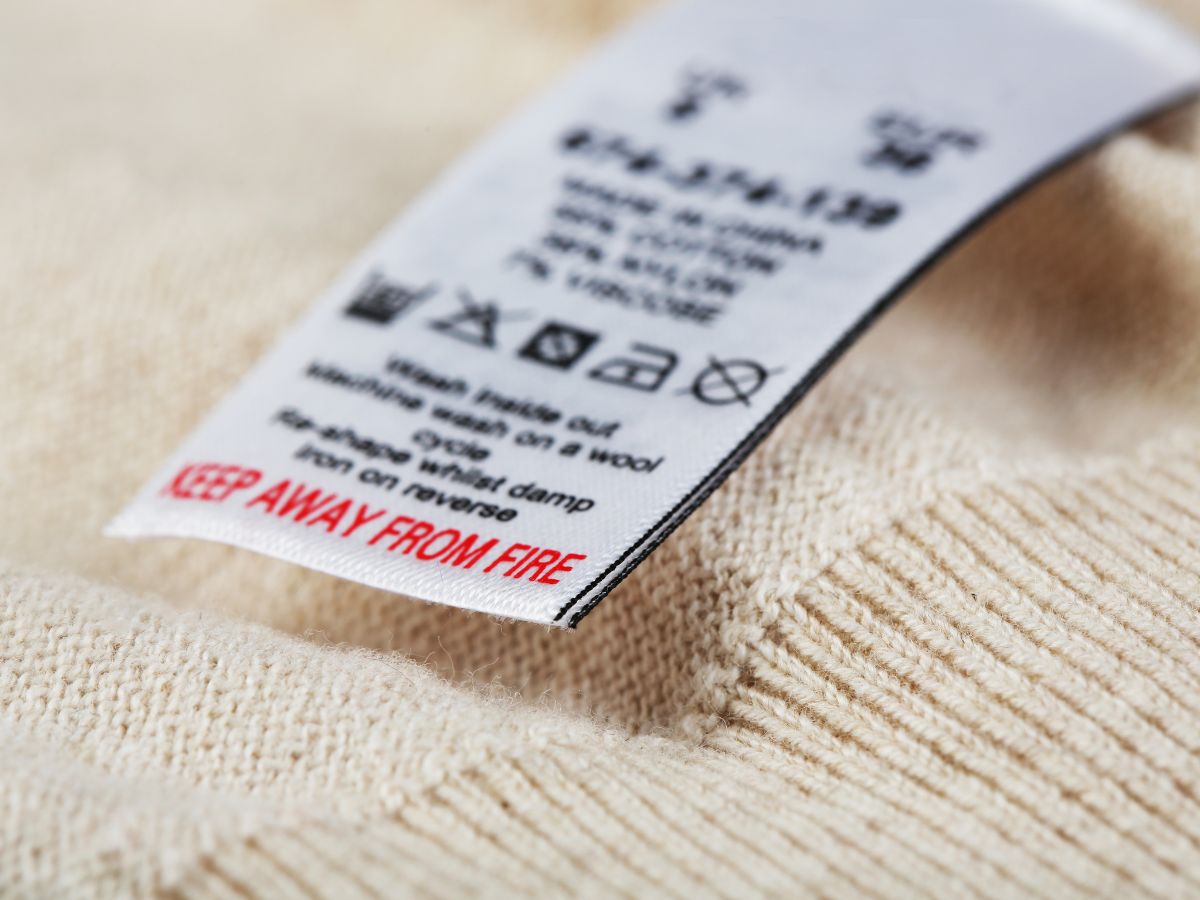
Pre-Washing Preparation and Sorting
Before washing your Hawaiian shirts, examine them for any stains, tears, or loose threads. Addressing these issues before washing can prevent further damage and ensure a more effective cleaning process. A study by the Drycleaning and Laundry Institute found that treating stains promptly can increase the chances of successful removal by up to 75%.
Sorting your Hawaiian shirts by color and fabric type is crucial to prevent color bleeding and fabric damage. The American Cleaning Institute recommends the following sorting categories:
- Whites
- Darks
- Colors
- Delicates
Washing Techniques for Optimal Color Retention
Choosing the right detergent is key to maintaining the vibrant colors of your Hawaiian shirts. Opt for mild, color-safe detergents that are specifically formulated to prevent fading and preserve the integrity of the fabric. A study by the University of Leeds discovered that using color-safe detergents can reduce color fading by up to 80% compared to regular detergents.
When setting your washing machine for Hawaiian shirts, always use cold water to minimize color loss and fabric shrinkage. According to Energy Star, washing clothes in cold water can save up to $40 annually on energy costs while effectively cleaning and preserving the fabric.
For delicate or vintage Hawaiian shirts, hand washing may be the safest option. The Smithsonian Institution recommends using a gentle, pH-neutral detergent and a soft-bristled brush to carefully clean delicate fabrics.
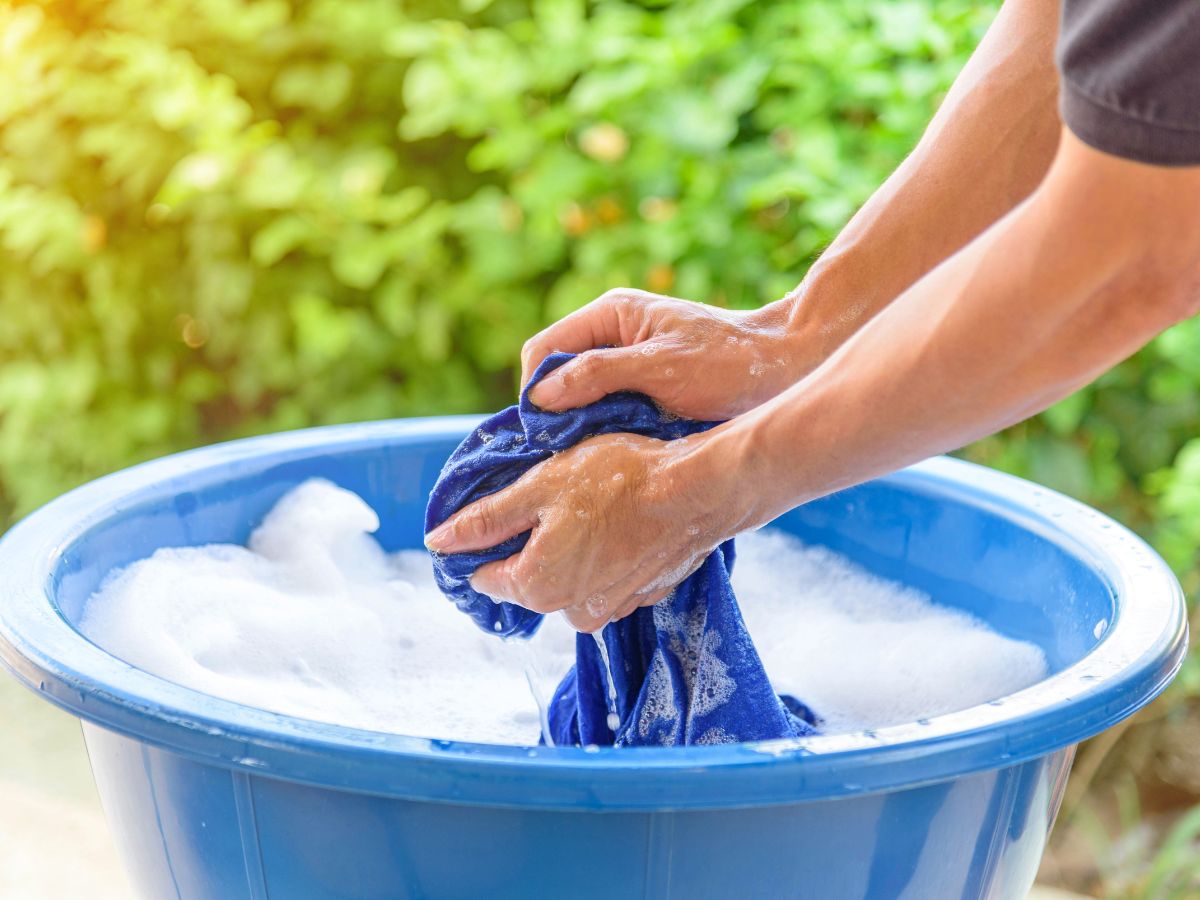
Drying Methods to Preserve Colors and Fabric Integrity
Air drying is the preferred method for Hawaiian shirts, as it minimizes the risk of color fading, shrinkage, and fabric damage. The Laundry Alternative, a leading provider of eco-friendly laundry solutions, states that air drying can extend the life of clothing by up to 50% compared to machine drying.
If you must use a machine dryer, exercise caution to prevent damage to your Hawaiian shirts. The Drycleaning and Laundry Institute advises using the lowest heat setting and removing the shirts promptly to minimize wrinkling and prolonged exposure to heat.
Ironing and Steaming Techniques for a Polished Look
The need for ironing or steaming your Hawaiian shirts depends largely on the fabric type. When ironing, set the appropriate temperature for the fabric:
| Fabric | Temperature Setting |
| Cotton | High |
| Linen | High |
| Polyester | Low to Medium |
| Rayon | Low |
| Silk | Low |
Source: The Laundress, 2021
To protect printed designs and vibrant colors, iron the shirts inside out, and consider using a pressing cloth as a barrier between the iron and the fabric. The University of Nebraska-Lincoln Extension recommends using a clean, white, lint-free cloth as a pressing cloth to prevent damage to delicate fabrics.
Steaming is a gentler alternative to ironing and can effectively remove wrinkles without subjecting the fabric to direct heat. A study by the University of California, Davis, found that steaming can reduce wrinkles by up to 90% while minimizing the risk of fabric damage.
Stain Removal and Color Restoration
To effectively remove stains while preserving the colors of your Hawaiian shirts, act quickly and use color-safe stain removers. The American Cleaning Institute provides the following guide for treating common stains:
- Food and drink stains: Blot with a clean, damp cloth and apply a color-safe stain remover.
- Sunscreen and oil stains: Pre-treat with a degreaser or dish soap before washing.
- Ink stains: Dab with rubbing alcohol or hairspray before washing.
If your Hawaiian shirts have lost some of their vibrancy over time, color restoration products can help. Look for color-enhancing detergents or fabric dyes specifically designed for use on clothing. A study by the University of Georgia found that using color-enhancing detergents can restore faded colors by up to 50%.
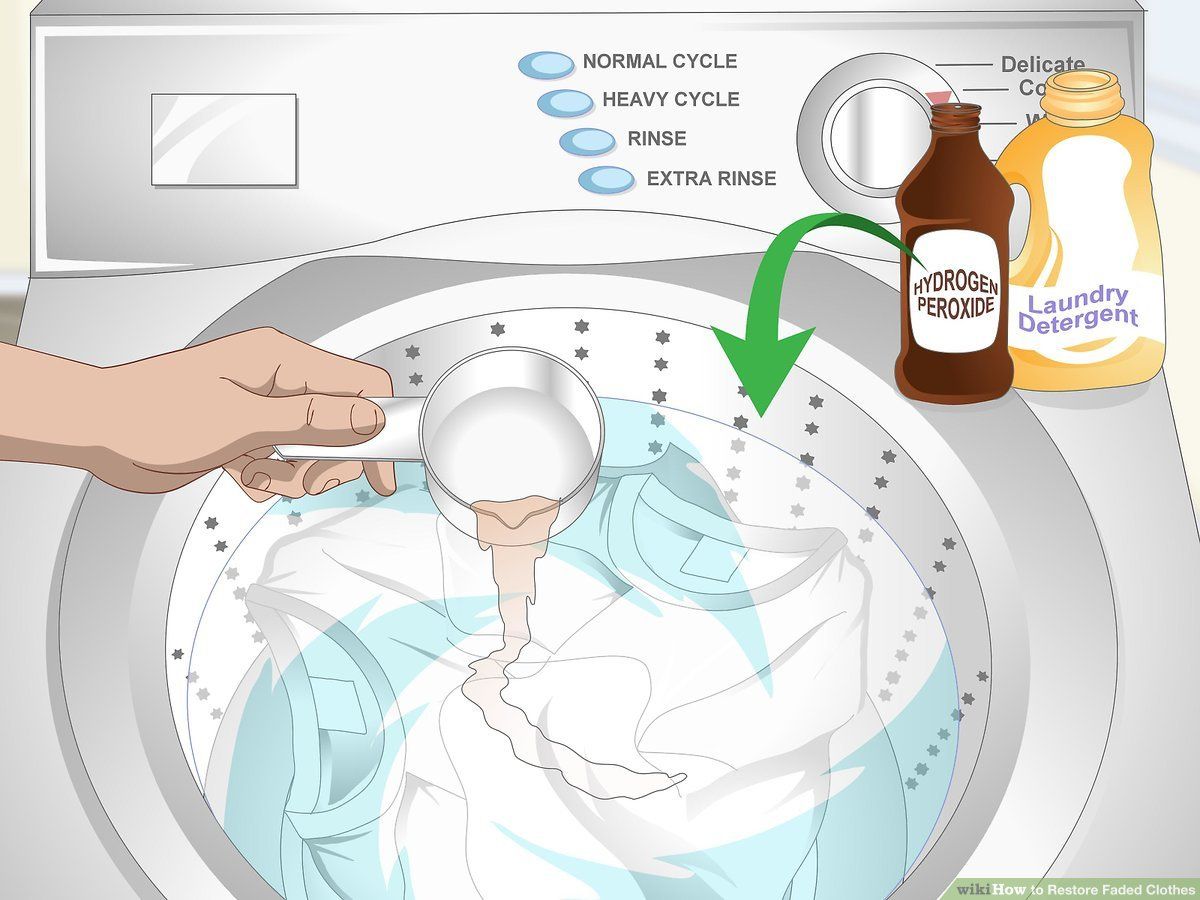
Proper Storage Techniques for Hawaiian Shirts
Proper storage is essential to maintaining the quality and longevity of your Hawaiian shirts. When storing Hawaiian shirts, consider the following tips:
- Use padded or wooden hangers to prevent stretching and distortion.
- Store in a cool, dry location away from direct sunlight and heat sources.
- Use breathable garment bags or storage boxes to protect from dust and moisture.
- Avoid storing in damp or humid conditions to prevent mildew growth and color damage.
A study by the Smithsonian Institution found that storing clothing in a cool, dry environment can extend its life by up to 30% compared to storage in humid or damp conditions.
Repairs and Alterations for Longevity
To extend the life of your Hawaiian shirts, address wear and tear issues promptly with simple repairs or alterations. Common repairs include:
- Reattaching loose buttons using a needle and thread that matches the button color.
- Mending small holes or tears using a needle and thread or a fabric patch.
- Replacing missing or damaged buttons with matching or complementary ones.
For more extensive damage or alterations, seek the help of a professional repair service, especially for valuable or sentimental Hawaiian shirts. A survey by the Association of Sewing and Design Professionals found that 85% of consumers have used professional repair services to extend the life of their clothing.
Styling and Rotating Your Hawaiian Shirt Collection
Hawaiian shirts are incredibly versatile and can be incorporated into various outfits for different occasions. According to a survey by the Aloha Shirt Museum, the most popular ways to style Hawaiian shirts include:
- Casual: Paired with shorts, jeans, or chinos (65%)
- Dressy: Layered under a blazer or suit jacket (20%)
- Beach: Worn over a swimsuit or with linen pants (15%)
To extend the lifespan of your Hawaiian shirts and ensure even wear, rotate them regularly in your wardrobe. A study by the University of Delaware found that rotating clothing can extend its life by up to 20% compared to wearing the same items repeatedly.
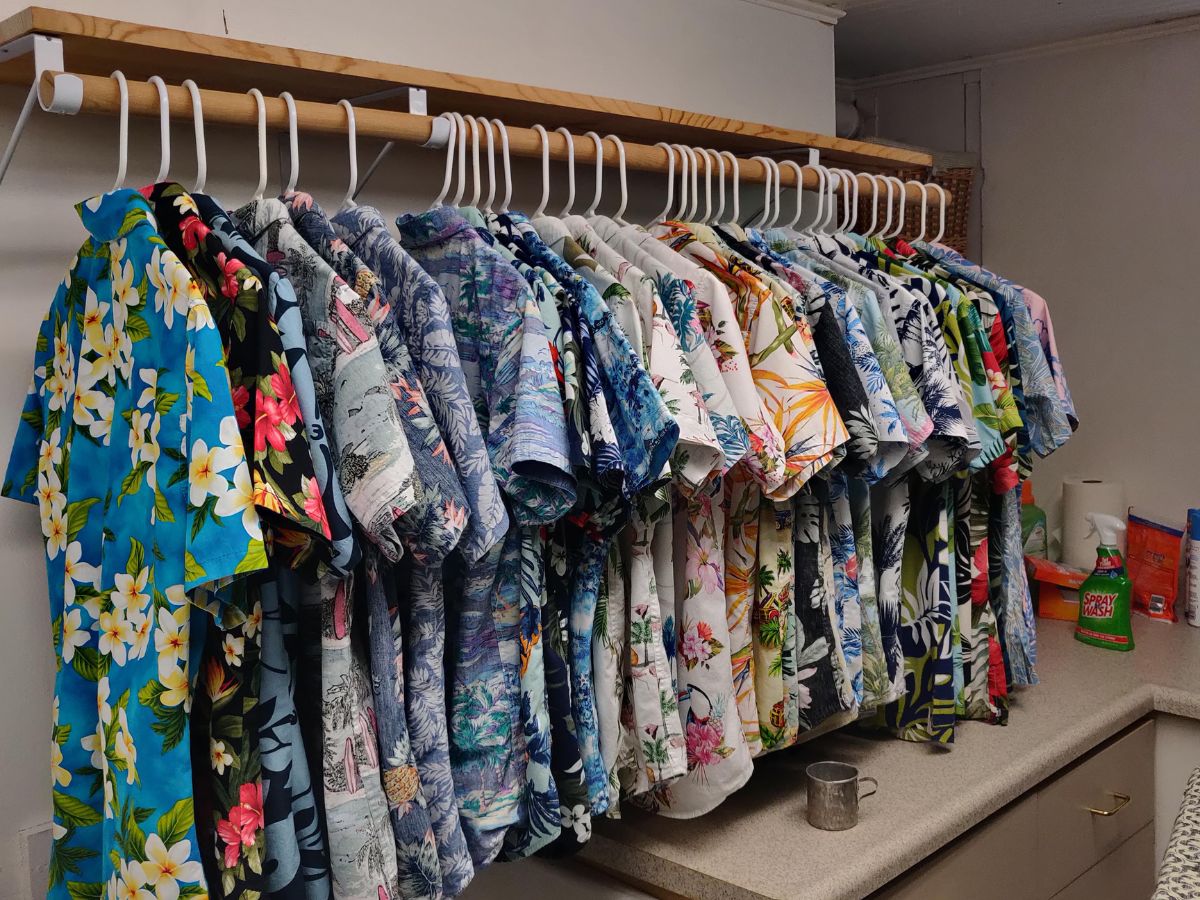
Are Hawaiian shirts actually from Hawaii? Read to find out the Surprising Origins of the Hawaiian Shirt
Conclusion
Caring for your Hawaiian shirts and maintaining their vibrant colors requires a combination of understanding fabric types, implementing proper washing and drying techniques, and addressing stains, repairs, and storage needs as they arise. By following the expert tips outlined in this guide, backed by scientific research and industry professionals, you can ensure that your Hawaiian shirts remain in excellent condition, allowing you to enjoy their unique charm and style for years to come.
Remember to always check care labels, use mild detergents, and opt for gentle cleaning methods to preserve the colors and integrity of the fabrics. Invest in proper storage solutions and address any damages or stains promptly to prevent further deterioration. By rotating your Hawaiian shirts and incorporating them into various outfits, you can maximize their versatility and longevity.
Embracing the spirit of Hawaiian shirts in your wardrobe means embracing a piece of timeless and joyful fashion. With their bold colors, unique patterns, and relaxed vibe, these shirts have the power to uplift your mood and transport you to a tropical state of mind. By taking the time to care for your Hawaiian shirts properly, you are not only preserving a piece of clothing but also preserving a piece of cultural history and personal style.
FAQ Section:
Q1: Can I machine wash my Hawaiian shirts with other clothing items?
A: It is best to wash Hawaiian shirts separately or with like colors to prevent color bleeding and fabric damage. Always sort your laundry by color and fabric type before washing.
Q2: How often should I wash my Hawaiian shirts?
A: Wash your Hawaiian shirts as needed, typically after 1-2 wears, or when they become visibly soiled. Overwashing can lead to premature fading and fabric wear, so aim to wash them only when necessary.
Q3: What is the best way to remove stubborn stains from Hawaiian shirts?
A: Pre-treat stubborn stains with a color-safe stain remover or a mixture of mild detergent and water. Gently work the solution into the stain before washing. For oil-based stains, use a degreaser or dish soap.
Q4: Can I use fabric softener when washing my Hawaiian shirts?
A: It is generally not recommended to use fabric softener on Hawaiian shirts, as it can leave a residue that attracts dirt and oils, leading to faster soiling. Instead, use a mild, color-safe detergent for best results.
Q5: How can I prevent my Hawaiian shirts from shrinking in the wash?
A: To minimize shrinkage, always wash your Hawaiian shirts in cold water and avoid using high heat when drying. Check the care labels for specific instructions based on the fabric type.
Q6: What is the best way to store Hawaiian shirts long-term?
A: For long-term storage, fold or hang your Hawaiian shirts in a cool, dry place away from direct sunlight. Use acid-free tissue paper between folded shirts or breathable garment bags for hanging to prevent yellowing and moisture damage.
Q7: Can I iron my Hawaiian shirts on high heat?
A: Ironing on high heat can damage the delicate fibers and vibrant colors of Hawaiian shirts. Always check the care label and use the appropriate temperature setting for the fabric type. When in doubt, use a lower heat setting and a pressing cloth.
Q8: How can I tell if my Hawaiian shirt is vintage or collectible?
A: Vintage Hawaiian shirts often have specific labels, tags, or prints that can help identify their age and origin. Look for labels from well-known brands like Reyn Spooner, Kamehameha, or Alfred Shaheen, and research the company’s history to date the shirt.
Q9: Are there any eco-friendly alternatives for washing and caring for Hawaiian shirts?
A: Yes, there are several eco-friendly options for caring for your Hawaiian shirts. Use cold water, mild biodegradable detergents, and air drying to reduce energy consumption and minimize the environmental impact of laundering.
Q10: Can I still wear a Hawaiian shirt with minor damages or stains?
A: Minor damages or stains on a Hawaiian shirt can often be repaired or concealed, depending on their location and extent. Consult a professional repair service for advice on mending or camouflaging the affected areas to extend the life of your shirt.




